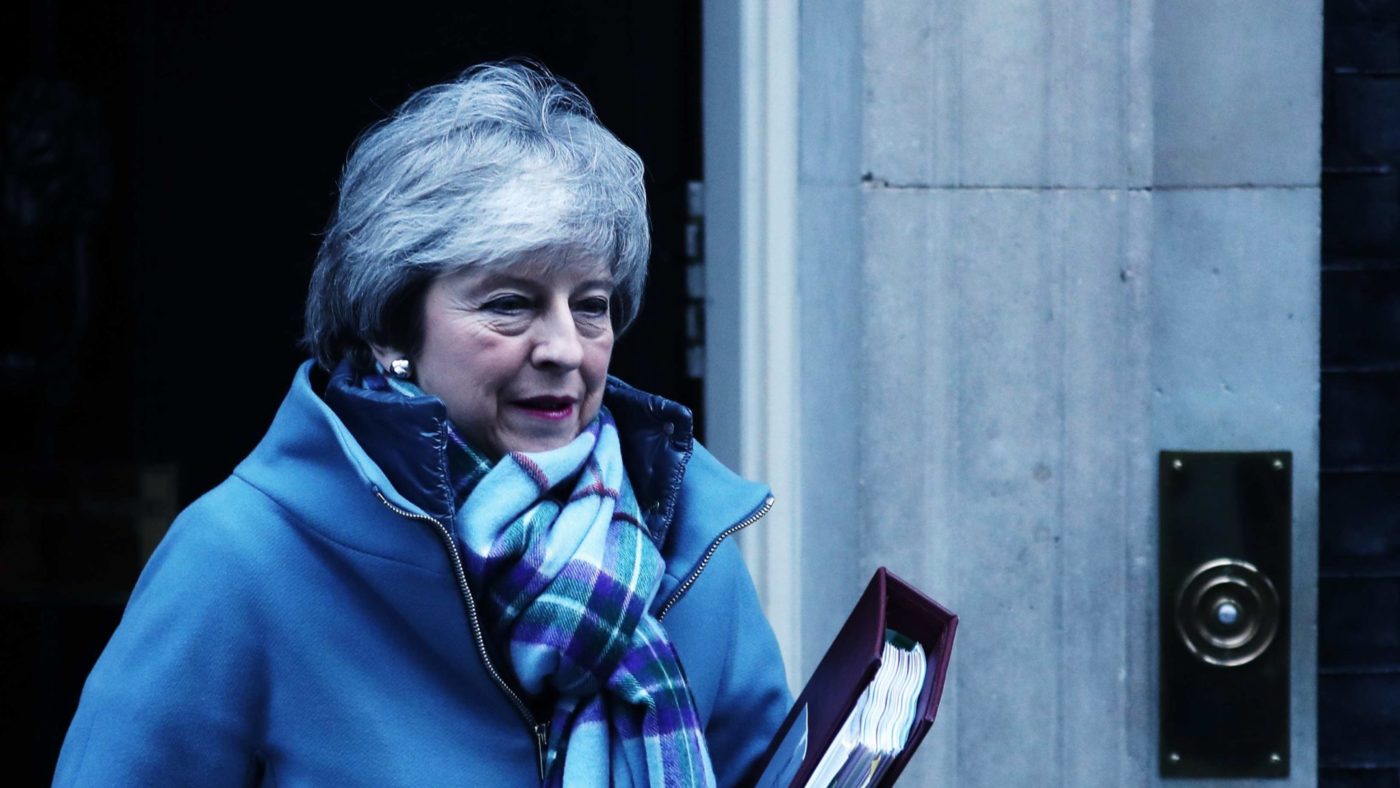“Snap election in June. Ugh.”
So texted a non-political friend over the weekend after the Mail on Sunday‘s report that the Conservatives had begun preparing for a possible campaign, firing up the printing presses and upping their digital advertising spend.
It was even suggested that an election could be scheduled to coincide with the anniversary of the D-Day landings on June 6, with all the patriotic fervour that would inspire.
The prospect of a snap election is enough to invoke the eminently sensible Brenda from Bristol, who, in 2017, famously declared: “Not another one! There’s too much politics going on at the moment”.
In his Telegraph column this morning, Boris Johnson dismisses the whole idea as simply a “scare tactic”, designed to gull rebellious Tory MPs into supporting Theresa May’s Brexit deal. One suspects on this particular issue, he has a point.
On the surface it’s not the worst tactic from Number 10 – after all, when the chips are down most MPs probably worry more about losing their job than about getting a sub-optimal Brexit deal.
But to have any impact, a threat needs to be based on a realistic premise – and there are any number of reasons to be extremely sceptical about the prospects of a snap election.
First, much as in 2017, it’s unclear what the point of an election at this stage would be. When Labour call for one, their goal is clear enough – win a majority and take over the government. If they don’t win a majority, to paraphrase the Prime Minister, nothing has changed.
The rationale for the Tories is altogether less obvious, especially as the Mail on Sunday’s report suggests May would aim to secure MPs’ support for her deal before going to the country. If she has already got a deal through, why does she need to go back to the voters for the second time since the referendum?
The old maxim that divided parties don’t win elections must also be prominent in senior Tories’ minds. It is worth remembering that dissent emanates not just from the Grieves and the Soubrys on the back benches — there are big disagreements on Brexit between senior Cabinet ministers.
If there were an election, how would those Tory MPs who had poured such scorn on May’s deal be able to go out and campaign for it? While much attention has been paid to Remainers threats to resign the whip in the event of No Deal, there has been less focus on what ardent Eurosceptics might do if a version of May’s deal somehow gets through the Commons.
Of course, Labour has plenty of problems of its own – a leadership that doesn’t seem to know what its Brexit policy is, and a parliamentary party that is sharply divided between continuity Remainers and colleagues in Leave-voting areas who fear a backlash if they are seen to obstruct the referendum result.
Perhaps the biggest factor militating against another election is what happened in 2017. However steely her determination, it seems highly likely that what happened last time the Prime Minister called an election to strengthen her position would weigh heavily on her mind. There is also the fact that she has already promised not to lead the party into the next election.
The numbers are a bit more favourable for the Conservatives at the moment, with one poll giving them a seven-point poll lead but it is worth remembering that May’s lead was more than double that at the start of the 2017 campaign.
And, as in 2017, voters already bored stiff of Brexit will wonder why they are putting up with yet more politicians on their TV screens banging on about Europe.
Beyond these political problems, the Conservative Party cannot ignore the practicalities of another vote. They already have a much weaker ground campaign than Labour, but just imagine how Eurosceptic activists, many of whom favour No Deal, would react if May were to force her deal through the Commons.
And CCHQ is all too aware of the lack of ground troops. Just three days ago, CCHQ sent party members an email from Michael Gove urging them to donate ahead of the upcoming local elections. “It’s a fact,” Gove warned. “Jeremy Corbyn’s Labour Party have more staff on the ground than we do.”
Nor can a good digital operation supersede the lack of people knocking on doors. If 2017 showed anything, it was that old-fashioned campaigning still has a place, even in the turbo-charged social media era. The Tories have been wise to invest more in their digital staff too, but that should be seen as a necessary response to being outgunned by Labour and Momentum in 2017, rather than a harbinger of a campaign to come.
Labour will also have ample backing from the trade unions, while the Tories are reportedly facing a good deal of reticence from some of their usual donors.
From the bitterly divided nature of the party to a lack of battle readiness, the list of reasons why an election does not make sense for the Conservatives is a long one. Brenda and the rest of us should rest easy for now.
CapX depends on the generosity of its readers. If you value what we do, please consider making a donation.


